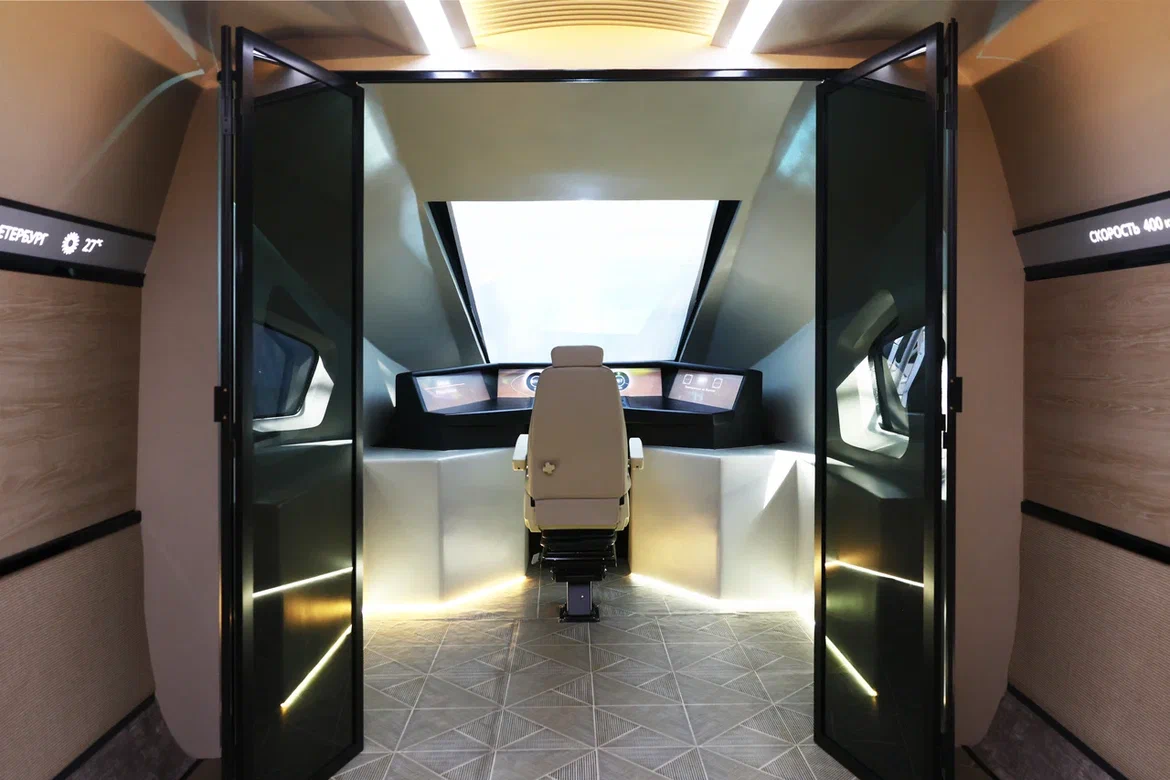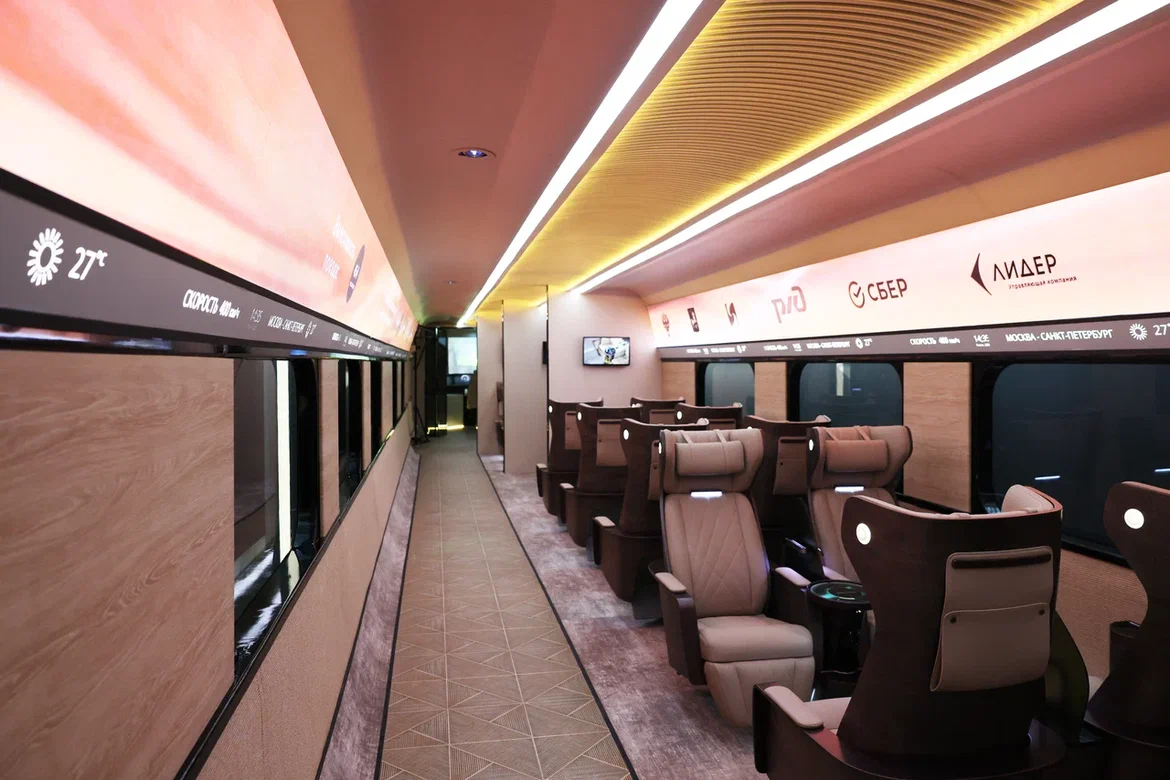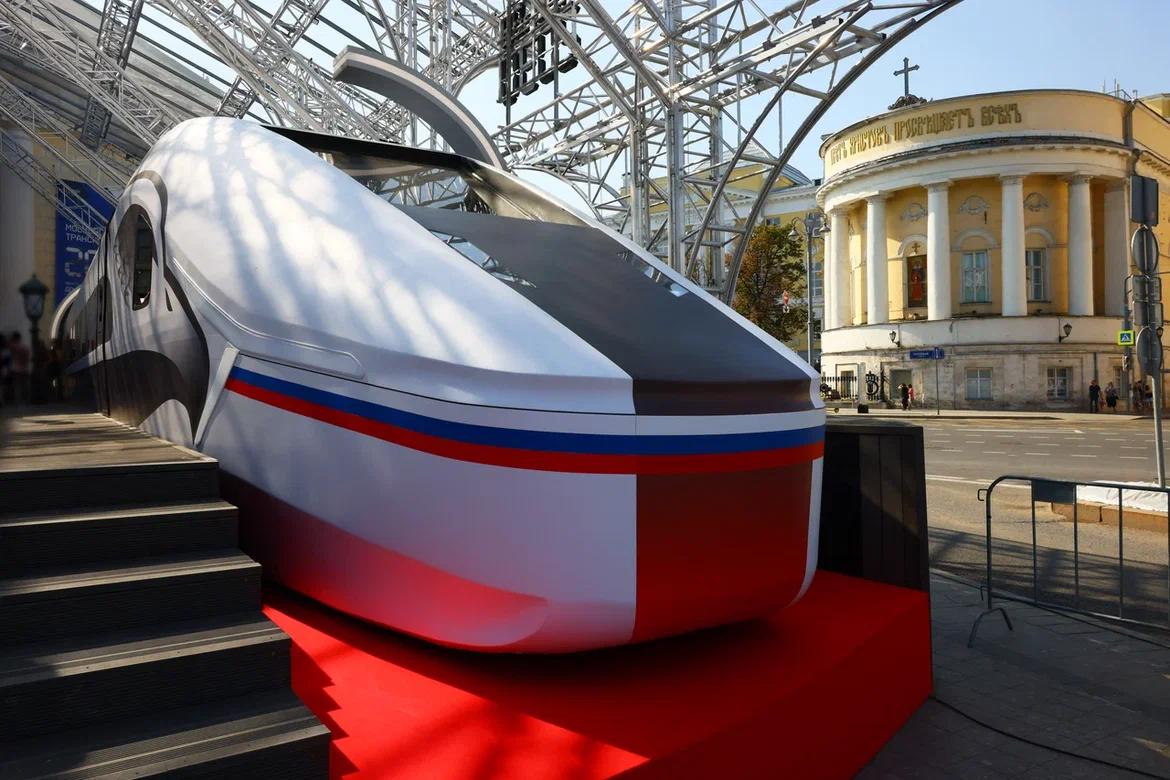Московский метрополитен:
Московский метрополитен впервые в России ввел в эксплуатацию цифровые станции, объединив передовые технологии с традиционными услугами для повышения комфорта и удобства пассажиров.
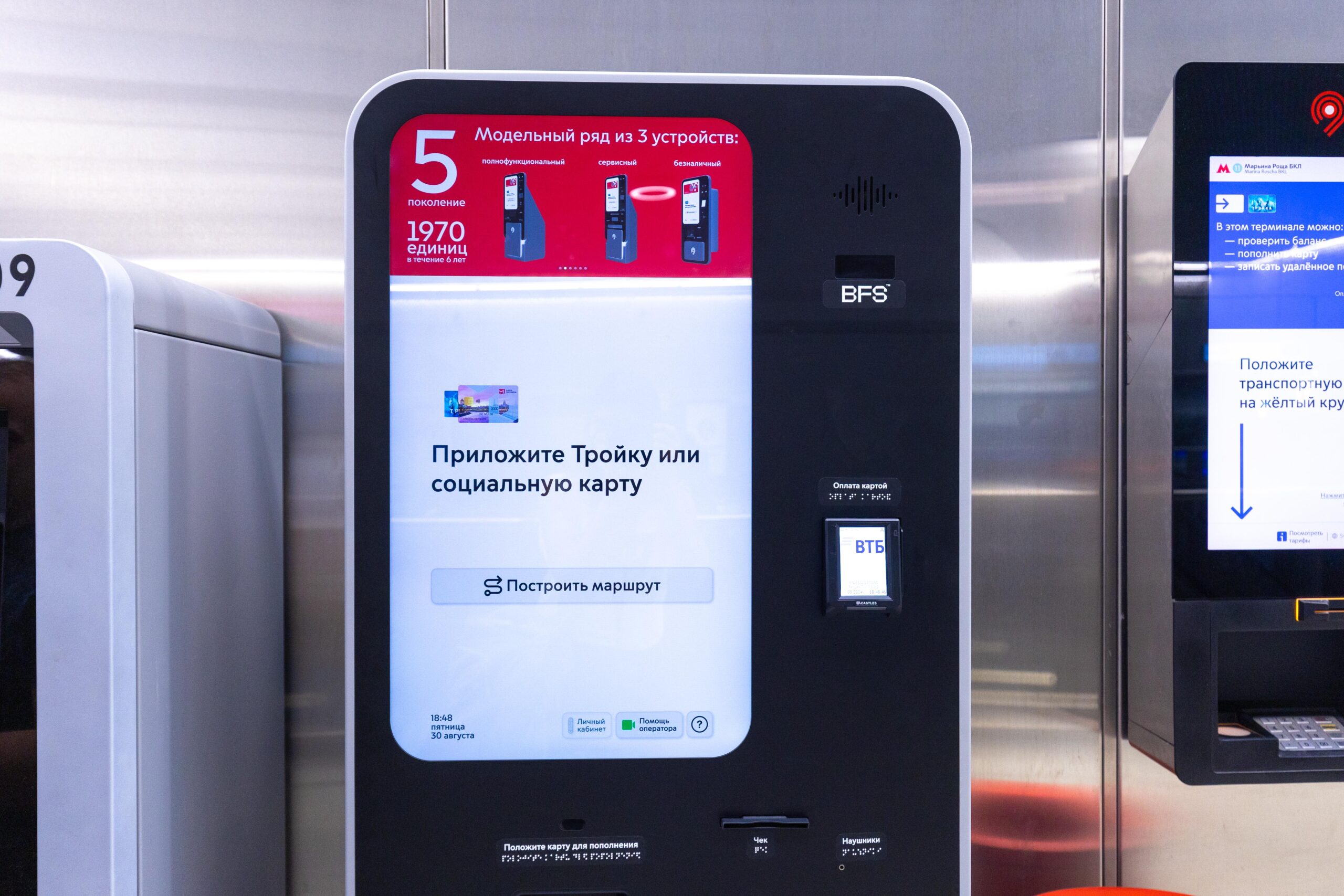
Лидерами инновационной инициативы стали два пилотных объекта: станция «Марьина Роща» на Большой кольцевой линии метрополитена и терминал № 1 на станции «Нижегородская». На этих станциях представлены различные элементы, призванные сформировать будущее городской мобильности.
Ключевые особенности цифровых станций:
1. Цифровой путевой указатель:
Обновление в режиме реального времени с помощью анимированных иконок, текстовых блоков и всплывающих вставок.
Сенсорные табло с картами местности, схемами метро, информацией о доступности станций и наземного городского транспорта.
Интерактивные информационные стенды, позволяющие часто обновлять информацию и размещать дополнительные объявления.
2. Технологические инновации в Марьиной Роще:
Киоск «Живое общение»:
3D-чатбот по имени Александра сочетает в себе функциональность чатбота и человеческого помощника. Пассажиры могут в любое время получить помощь и приобрести сувениры метро.
Усовершенствованные турникеты:
Новая конструкция турникетов увеличивает пропускную способность на 30 % благодаря компактности. Интерактивная подсветка на турникетах показывает статус оплаты, и они принимают различные способы оплаты, включая биометрические. Встроенная система освещения подсказывает пассажирам, куда встать для оплаты по распознаванию лица.
Модернизированные автоматы по продаже билетов:
Эти автоматы оснащены яркими и широкими цифровыми экранами, работают быстрее и предлагают дополнительные функции, такие как планирование маршрута и временная заморозка проездных билетов на время отсутствия пассажира.
Умные потолочные светильники:
Эти светильники отображают уровень переполненности вагонов поезда, позволяя пассажирам выбирать менее переполненные варианты, стоя под зелеными индикаторами.
Проекционная система:
Одиннадцать мини-проекторов, встроенных в подсветку эскалаторной арки, отображают полезную информацию, в том числе прогноз погоды от Яндекс.Погоды.
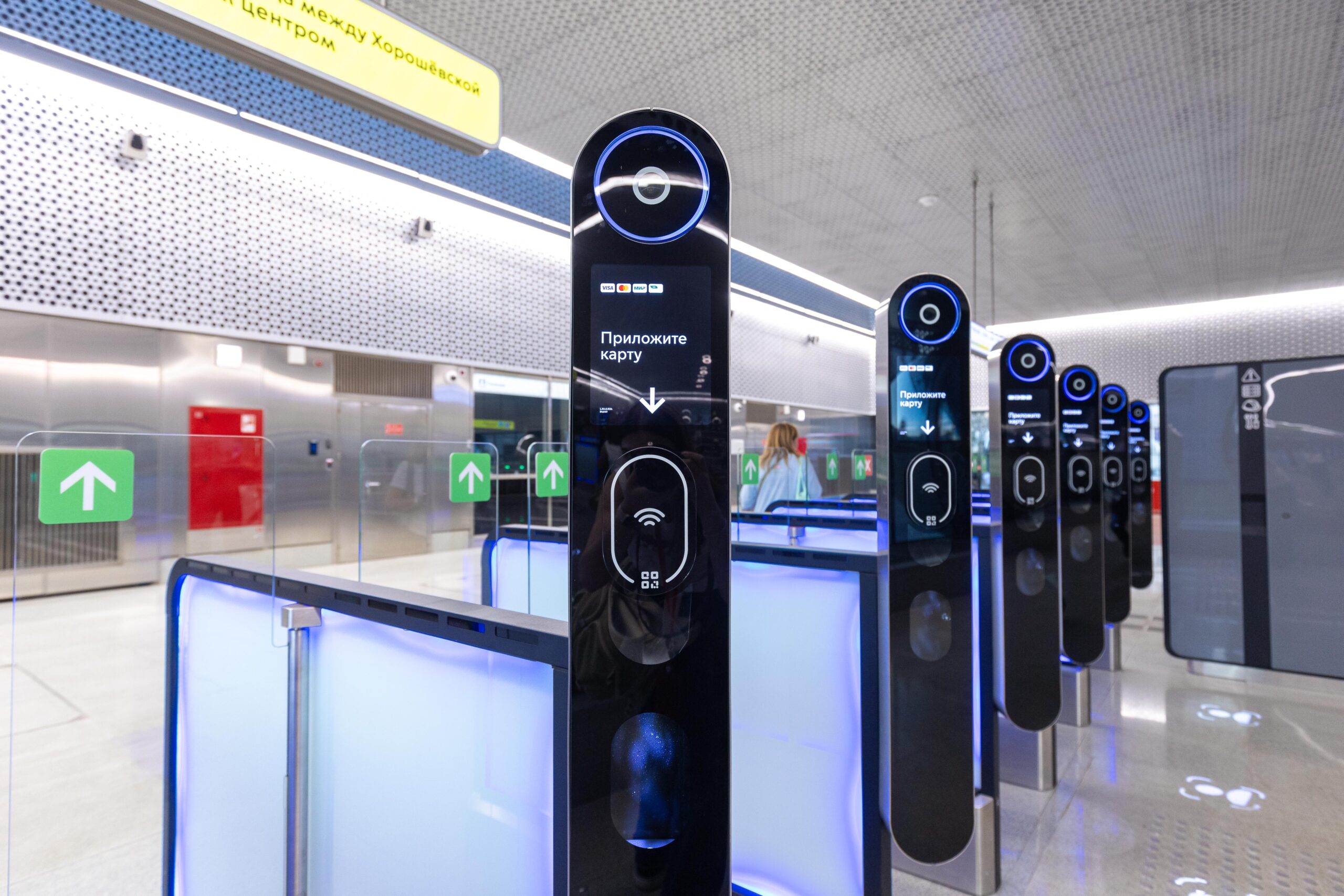
Интегрированные расписания поездов:
Кроме того, цифровые станции интегрируют расписания поездов Московского центрального кольца (МЦК) и Московских центральных диаметров (МЦД) с маршрутными картами РЖД, повышая согласованность систем информирования пассажиров.
Перспективы на будущее
Если эти цифровые станции окажутся успешными, то к 2030 году город планирует заменить до 30% всех путевых указателей в метро на цифровые версии.
Мэр Москвы Сергей Собянин торжественно открыл первые в России цифровые транспортные объекты. Мы создали их в рамках программы развития московского транспорта до 2030 года с акцентом на инновации для повышения комфорта пассажиров.
К разработке представленных решений были привлечены российские дизайнеры, проектировщики и производители, – рассказал заместитель мэра Москвы по вопросам транспорта Максим Ликсутов.
Вовлечение пассажиров и обратная связь:
Для постоянного совершенствования цифровые системы на станциях «Марьина Роща» и «Нижегородская» оснащены QR-кодами. Пассажиры могут использовать эти коды, чтобы оставлять отзывы в течение следующих шести месяцев. Эти отзывы будут проанализированы для определения возможности масштабирования проекта.
Благодаря этому новаторскому проекту Москва намерена переосмыслить городские поездки, сделав их более эффективными, «отзывчивыми» и удобными для пользователей, используя лучшие достижения современных технологий.
